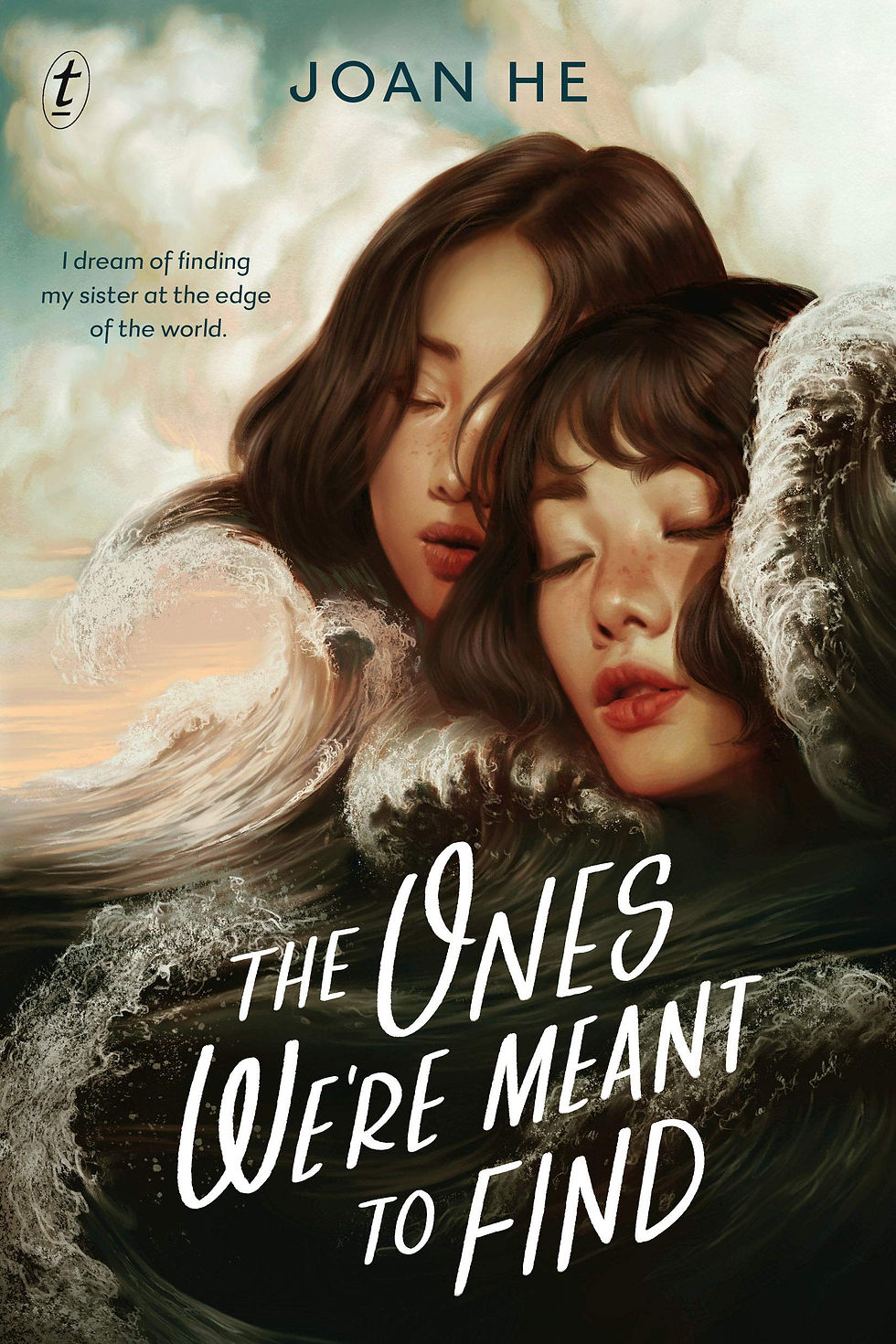By Kelly Stone, Sarah Lundy, Lucy Lillystone, Amy Wright and Ellie Brady
Following the conclusion of COP26, take a look at these books inspired by the changing climate and what we can do to help. Throughout fiction and non-fiction, the theme of global warming is vital and the more we can read and learn, the better we will be at finding solutions.
The Ones We're Meant to Find by Joan He

Set in the immersive backdrop of futuristic eco-cities, in the wake of devastating natural disasters, this YA dystopian novel follows two sisters who are oceans away from each other. Cee is lost on a deserted island with no other memories than those of her sister. Kasey is at the forefront of scientific research in the eco-cities that are fighting for their survival. This poignant, thrilling story confronts humanity with climate change’s dire consequences. With heart and authenticity, Joan He portrays the intense realities of her characters as they find themselves in the midst of an unstable, radically changing world.
The History of Bees by Maja Lunde

The History of Bees by Maja Lunde tells the stories of three generations of beekeepers in 1851, 2007 and 2098. Beginning in the future, we are introduced to the realisation that there are no bees in 2098, and Tao must paint pollen onto fruit trees with her own hand. Introducing us to three characters from different times, this cautionary tale forces us to consider whether the dystopian vision that Lunde has created for 2098 could actually become reality. The History of Bees is a thought-provoking blend of historical, contemporary and dystopian fiction. It is an urgent reminder of the damage that humankind can do to Earth where, without bees, our existence is under threat.
The Bear by Andrew Krivak

The Bear follows a girl and her father who are living alone in the wilderness at the end of humanity, in a futuristic Eden-like world. With only a few remnants of civilization left (some books, a pane of glass, a set of flint and steel, a comb), their days are filled with diving for mussels, foraging the forest floor, watching the stars in the night sky; being one with the beauty of the wild. While Krivak tells an excellent tale of love and loss, The Bear is also a brilliant piece of eco-fiction; a cautionary tale and a stunning tribute to the brilliancy of nature alongside its fragility in the hands of humans. With beautiful descriptions of nature and touching tales of animals, the breath-taking writing sucks readers in, making them feel responsible for the world they live in. Read this book and inevitably, as we did, become emotionally involved within the world around us.
Flight Behaviour by Barbara Kingsolver

As the struggle against global warming becomes increasingly evident, this issue will begin to permeate works of fiction more frequently. It is simply something that can no longer be ignored. Flight Behaviour, written nearly a decade ago, uses an abnormal flock of monarch butterflies to highlight the scary reality of changes to our climate and the reluctance of many people to face what is right in front of our eyes. The issue of climate change haunts this book silently for much of the first half. It is only lightly touched upon until the scientist, Ovid, is incensed by a TV journalist who suggests it might not be real. It is an incredibly impactful scene and his words will stick with you beyond the book: “The Arctic is genuinely collapsing. Scientists used to call these things the canary in the mine. What they say now is, the canary is dead.”
Dart by Alice Oswald

This considered work of eco-fiction by Alice Oswald delivers its message as a longform poem. Oswald spent three years recording her conversations with the people who both live and work on the River Dart in Devon, including a sewage worker, a ferryman, swimmers, water sports lovers and fishermen. She allows these voices to organically slip into her poem, creating a blurred and polyphonic reading experience that serves its subject matter well. This, coupled with Dart’s beautiful and vivid descriptions of the river, serves to bring the personal and the environmental into one entity with deeply affecting results. Given the British waterways sewage-dumping crisis that has been making headlines adjacent to COP26 in Glasgow, this poem-as-book is worth reading now more than ever.
